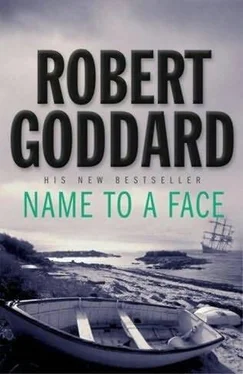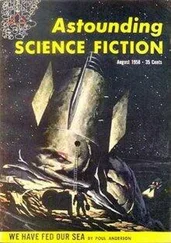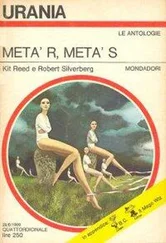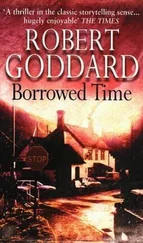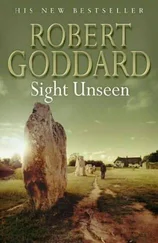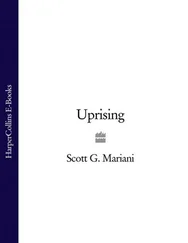A steely rain was falling in Dulwich, inducing a premature dusk. Harding made his way along Bedmore Road, a broad, straight thoroughfare of robust inter-war family homes, wondering which house the Foxtons had lived in, before arriving at Ann Gashry’s door.
The interior felt more Victorian than twentieth-century, with lots of heavy curtains and ponderously ticking clocks. He was admitted by a small, round rubber ball of a woman and led into a fustily decorated drawing room, accompanied along the way by a mildly curious King Charles spaniel. The woman called up the stairs for Ann, made him an offer of tea, which he accepted, then vanished, her status in the household-servant, companion, relative-left unclarified. The dog followed her at a leisurely pace.
Harding had only a minute or two in which to inspect various silver-framed photographs on the mantelpiece before Ann Gashry arrived. She looked remarkably similar to a Flapper-era woman whose picture he had just been studying, though the similarity did not extend to dress. His hostess was kitted out in twinset, pearls and calf-length skirt. A Home Counties bob and librarian glasses completed the dowdy effect, but her piercing, damson-eyed gaze hinted that he should not judge her by her appearance.
“Mr. Harding.” They shook hands. “Did Dora offer you tea?”
“Yes, she did.”
“Good. Shall we sit down?”
“Thanks.” They settled either side of the fireplace. “And thanks for seeing me.”
“As I explained on the phone, Mr. Harding, you have Hayley to thank for that. The way my brother’s behaved towards her…” She shuddered. “I sometimes find it hard to believe Nathan and I are the same flesh and blood, but there it is. Our parents divorced and I stayed with Father while he went with Mother, so we’ve had… different upbringings. He’s a good deal younger than I am as well. But even so…”
“It can’t be easy for you. Holding out on him about Hayley.”
“I hardly ever see him, actually. It really isn’t that difficult.”
“The Foxtons lived nearby, I gather.”
“Just a few doors away. I miss them. Such nice people.”
“What happened to Kerry was… tragic.”
“Indeed. She had such… charisma. Her death was an irreparable loss to all who had the good fortune to know her. A tragedy, as you say. Also a mystery. And I believe it’s the mystery rather than the tragedy you’ve come to discuss.”
“Yes.” He smiled. “It is.”
“But I don’t quite understand your interest in the matter. Hayley said you were acting on Barney Tozer’s behalf.”
“I was.”
“And now?”
“I want to find out the truth. For everyone’s sake.”
“A noble but perilous ambition.”
“Why perilous?”
“I don’t know. But you have Kerry’s sad example to tell you that it is.”
“It might have been an accident.”
“I don’t think so. Nor does Hayley does she?”
“Not since the burglary no.”
“Ah, yes. The burglary.” She looked round, catching some noise from the hall. “Here’s Dora with the tea, I think.”
It was indeed Dora. Ann switched adroitly to a recommendation of the latest exhibition at Dulwich Picture Gallery while tea was delivered, lingering on the subject until Dora was long gone and they both had a cup in their hand. Then she swiftly reverted to the question of the ring.
“I’m both surprised and unsurprised by news of its theft. Surprised because such an act seems, on the face of it, inexplicable. Unsurprised because its history is riddled with similar incidents.” She sipped her tea and paused to order her thoughts, then said, “As you shall hear.”
My involvement in this-and hence Kerry’s-began with my researches into my most, indeed only eminent ancestor, Francis Gashry a Member of Parliament for twenty years in the mid-eighteenth century. He was born in London in 1702. His parents, original name Gascherie, were Huguenot refugees from La Rochelle. Most of my information about him came initially from the archives of the Huguenot Association. His political career had its roots in his appointment in 1728 as secretary to Admiral Sir Charles Wager, recently retired from the sea and a member of the Admiralty Board. Wager became First Lord of the Admiralty in 1733. That made Gashry a significant person in the Admiralty without being an official member of staff, though he was later to become one-Commissioner of the Navy, no less.
“But I digress. The crux of the matter is that as Wager’s right-hand man and a semi-detached civil servant, Gashry was the natural choice to tackle a sensitive problem that presented itself in February 1736.
“As you know, nearly thirty years previously, in October 1707, Admiral Sir Clowdisley Shovell’s flagship, HMS Association , had gone down off the Scillies, with the loss of all hands, including Shovell. Shovell’s body had been washed up on the coast of St. Mary’s and, at some point prior to the arrival of a search party, a precious emerald-and-diamond ring had been stolen from his finger. Attempts to recover it had failed, despite a large reward offered for its return by Lady Shovell. She died in 1732, with the fate of the ring still unknown.
“In February 1736, however, that changed, with the arrival at the Admiralty of two letters passed on to Wager by Lord Godolphin, hereditary-and absentee-Governor of Scilly The first letter was from the Reverend Richard Symons, parish priest for the islands. It reported that one of his parishioners, an aged widow, had made a dying confession to the theft of the ring, which she had kept hidden ever since but now wished to be returned to the Shovell family. Symons explained that he was arranging this through a gentleman called Godfrey Shillingstone, who was in the Scillies at the time conducting antiquarian research, with Lord Godolphin’s blessing, and was due to leave shortly, bound for London, where he would deliver the ring to His Lordship, for onward transmission to the Shovells.
“This would have been excellent news, especially for Wager, who had served under Shovell as a junior officer, but for the contents of the second letter. It was from the Reverend Dr. Walter Borlase, Vicar of Madron, near Penzance, a living controlled, like most others in the area, by Lord Godolphin. Shillingstone had stayed with him for a few nights on his way to the Scillies and had done so again on his way back. Borlase was a magistrate and alderman as well as a priest. He must have been mortified to have to report to his patron, who had previously asked him to assist Shillingstone in any way he could, that the unfortunate antiquarian was dead and the ring missing once more.
“Borlase recounted that he and his wife had been dining out one evening shortly after Shillingstone’s arrival. Their guest had opted not to join them and had remained at their home, where a burglary had occurred prior to their return. The servants had heard nothing. Shillingstone had gone outside, for whatever reason, and been knifed to death. And the ring had been stolen from a desk drawer in Borlase’s study, where Shillingstone had previously lodged it for safe keeping. The lock on the drawer had been forced. Nothing else had been taken. But the ring was gone.
“This would have been quite bad enough, but, to make matters worse, Lord Godolphin had already alerted Shovell’s eldest daughter, Lady Hyndford, to the recovery of the ring and was at a loss how to explain to her that it had been stolen yet again. To get himself off the hook, he argued that the whole problem was Admiralty business, which he was happy for them to deal with as they saw fit.
“Perhaps out of loyalty to his old commanding officer, Wager took the matter on and dispatched Gashry to Penzance with instructions to investigate the circumstances of Shilling-stone’s murder and, if possible, recover the ring. Gashry later wrote a full report of what he accomplished, which is how I know about his mission. The report mouldered in the archives until 1964, when the Admiralty was absorbed by the Ministry of Defence and there was a clear-out of old documents. A junior civil servant called Herbert Shelkin kept a lot of stuff that would otherwise have been destroyed, including the Gashry report, which he was particularly interested in because the Shelkins, original name Schulkin, also come from Huguenot stock. He wrote an article about Huguenot MPs, mentioning Gashry, in the Huguenot Association journal about ten years ago. That’s what put me on to him. He’s a rather eccentric individual, afraid officialdom might yet accuse him of stealing the documents he removed and cancel his pension. But I was able to persuade him to let me read the report. And a fascinating read it was too.
Читать дальше
